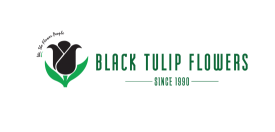ETHIOPIA
The Ethiopian flower industry represents an extraordinarily fast and successful diversification into a non-traditional export product. The Ethiopian flower industry emerged in the late 1990s, and despite being a late-comer, Ethiopia has become the second largest flower exporter in Africa (after Kenya) with over 100 flower growers on 1,700 hectares. The floriculture industry has shown a remarkable growth in the last ten years and provided many economic and job opportunities to the country. The Ethiopian flower industry is flourishing, with the help of government incentives and low labor costs.
Climate is a major competitive advantage for the floriculture industry in the country. Parts of the country south of Addis Ababa are 2,000 meters (6,561 feet) above sea level, and this makes it an ideal environment for floriculture. The export-oriented agricultural policy, attractive incentives, macro-economic stability and cheap labor constitute the competitive edge for the Ethiopian flower industry. Additionally, the Federal Government, the Ethiopian Horticulture Producers and Exporters Association (EHPEA), and international investment played key roles in Ethiopia’s floriculture industry development. With good climate conditions and cheap transportation costs, Ethiopia was a favorable choice, especially for the cultivation of roses and a best choice for investors.
The competitive advantages are attracting foreign flower growers. The better investment climate in Ethiopia compared to these countries may have contributed to the increasing shift of foreign investment to Ethiopia. State-owned land was made available for flower farms at affordable prices, especially near the airport. This reduced transportation cost facilitated market entry. The export-oriented agricultural policy, attractive incentives, macro-economic stability and cheap labor constitute the competitive edge for the Ethiopian flower industry. The government also offered attractive incentives for investors. For example, a five-year corporate tax exemption for inputs, import duties were scrapped and investors were also given access to financing from banks. It became obvious that Ethiopia had a comparative advantage in the production of roses, especially with vast amount of labor.
The advantages of the floriculture industry in Ethiopia made Black Tulip Group spread his business and investment. BTF Group acquired and proudly owns over 5 farms in Ethiopia namely Hansa Flowers PLC, Holetta Roses PLC, Oromia Wonders PLC, Dream Flowers PLC and Alliacne Flowers PLC.
 +971 552219346 |
+971 552219346 |  info@btfgroup.com
info@btfgroup.com







